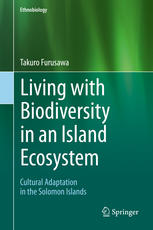

Most ebook files are in PDF format, so you can easily read them using various software such as Foxit Reader or directly on the Google Chrome browser.
Some ebook files are released by publishers in other formats such as .awz, .mobi, .epub, .fb2, etc. You may need to install specific software to read these formats on mobile/PC, such as Calibre.
Please read the tutorial at this link: https://ebookbell.com/faq
We offer FREE conversion to the popular formats you request; however, this may take some time. Therefore, right after payment, please email us, and we will try to provide the service as quickly as possible.
For some exceptional file formats or broken links (if any), please refrain from opening any disputes. Instead, email us first, and we will try to assist within a maximum of 6 hours.
EbookBell Team

4.3
88 reviewsThis book presents a detailed case study of ecological and cultural interactions between the people and their natural environment at Roviana Lagoon, Solomon Islands, a land of rich biodiversity. This volume documents the subsistence lifestyle of the people and their indigenous ecological knowledge, analyzes the effects of recent socioeconomic changes on the people and ecosystem, and proposes future directions for sustainability. The contents have been designed to answer questions such as, “What kinds of factors have determined whether current human actions are sustainable or will result in a collapse of biocultural diversity in the Solomon Islands?”; “How do Solomon Islanders recognize nature and biodiversity conservation in traditional ways or under socioeconomic changes?”; and “How can harmony between humans and nature be achieved in the Solomon Islands under changing socioeconomic conditions?” A truly transdisciplinary approach is applied, integrating theories of human ecology, quantitative ethnobiology, and folk ecology and methods of vegetation surveys, ethnographic fieldwork, remote sensing, and health surveys, in order to link different domains of humans and the natural world. In addition, this work focuses on the importance of understanding of diversity not only in natural environments, but also in human societies, and will be a valuable source for many, especially ecologists, anthropologists, conservation practitioners, and rural development planners.